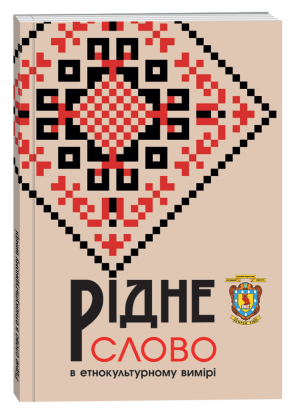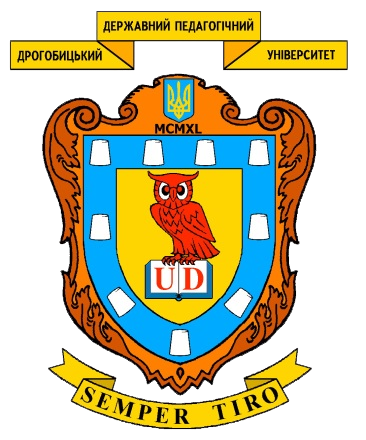WORD-FORMATIVE AND SEMANTIC NEOLOGISMS IN VERB VOCABULARY OF UKRAINIAN LANGUAGE AT THE BEGINNING OF THE XXIST CENTURY
DOI:
https://doi.org/10.24919/2411-4758.2018.140896Keywords:
verb; neologism; innovation; semantic derivation; word-formative derivation; derivative.Abstract
Word-formative and semantic verb neologisms fi xed in the dictionaries of Ukrainian language of the beginning of the XXIst century have been analyzed in the article and the methods of their formation have been determined. Word-formative and semantic deri vation is one of important sources of lexical enrichment of Ukrainian language. Language reality testifi es to this fact: many new verbs and new meanings that had been developed in the verbs available in the language were codifi ed in lexicographical works at the beginning of the XXIst century. Verb innovations fi xed in the dictionaries have been formed mainly by means of suffi xation. The largest group of word-formative neologisms that appeared due to this method consists of the verbs derived from nouns. Verbs are a word-formative basis for the creation of new prefi xal lexemes. Most part of prepositions act as verb prefi xes in modern Ukrainian language. These verb innovations do not express new types of actions, they just concretize, defi ne these actions concerning space, time and number more precisely. Much fewer verb neologisms resulted from prefi xal-suffi xal method of formation. Suffi xal-postfi xal, prefi xal-suffi xal-postfi xal methods proved to be the least productive. The created verb innovations represent mostly scientifi c and generic vocabulary. The mentioned methods are productive for the creation of slang verbs as well. The changes in the vocabulary of the language are connected not only with borrowings and the appearance of neologisms but with the potential ability of each autonomous word to acquire new meanings, convey individual, fi gurative in accordance with a speech situation as well. The development of innovative semantics in verbs takes place according to the common language laws. Semantic development of a verb manifests itself in broadening or narrowing, generalization or concretization, clarifi cation of the meaning of a literary work. The reasons of the appearance of new lexical-semantic variations in verbs are such main processes as metaphorization, terminologisation and determinologisation. The description of the methods of verb innovation creation and of the development of new verb meanings and usages, made in the course of the investigation, is important for lexicographical practice as well as for deep understanding of stylistic, semantic and word-formative abilities of verbs.
References
Городенська К. (2004). Дієслово. Теоретична морфологія української мови. Київ : Пульсари.
Кабиш О. О. (2007). Зміни в семантичній структурі та функціонуванні маркованої лексики (Автореферат дис. канд. філол. наук). Національний педагогічний університет ім. М. П. Драгоманова, Київ.
Кушлик О. П. (2015). Словотвірна парадигматика похідних дієслів в українській мові. Дрогобич: Коло.
Левицький А. Є. (2005). Актуальні проблеми розвитку неології (на матеріалі англійської мови). Вісник Житомирського держ. ун-ту імені Івана Франка. Випуск 23. Житомир, Ред.-вид. від Житомирського держ. ун-ту імені Івана Франка, 16–22.
Олексенко В. П. (2005). Словотвірні категорії іменника. Херсон : Айлант.
Родніна Л. О. (1979). Суфіксальний словотвір іменників. Словотвір сучасної української літературної мови. Київ : Наукова думка.
Соколова С. О. (2003). Префіксальний словотвір дієслів у сучасній українській мові. Київ : Наукова думка.
Стишов О.А. (2005). Українська лексика кінця XX ст (на матеріалі мови засобів масової інформації). Київ : Пугач.







